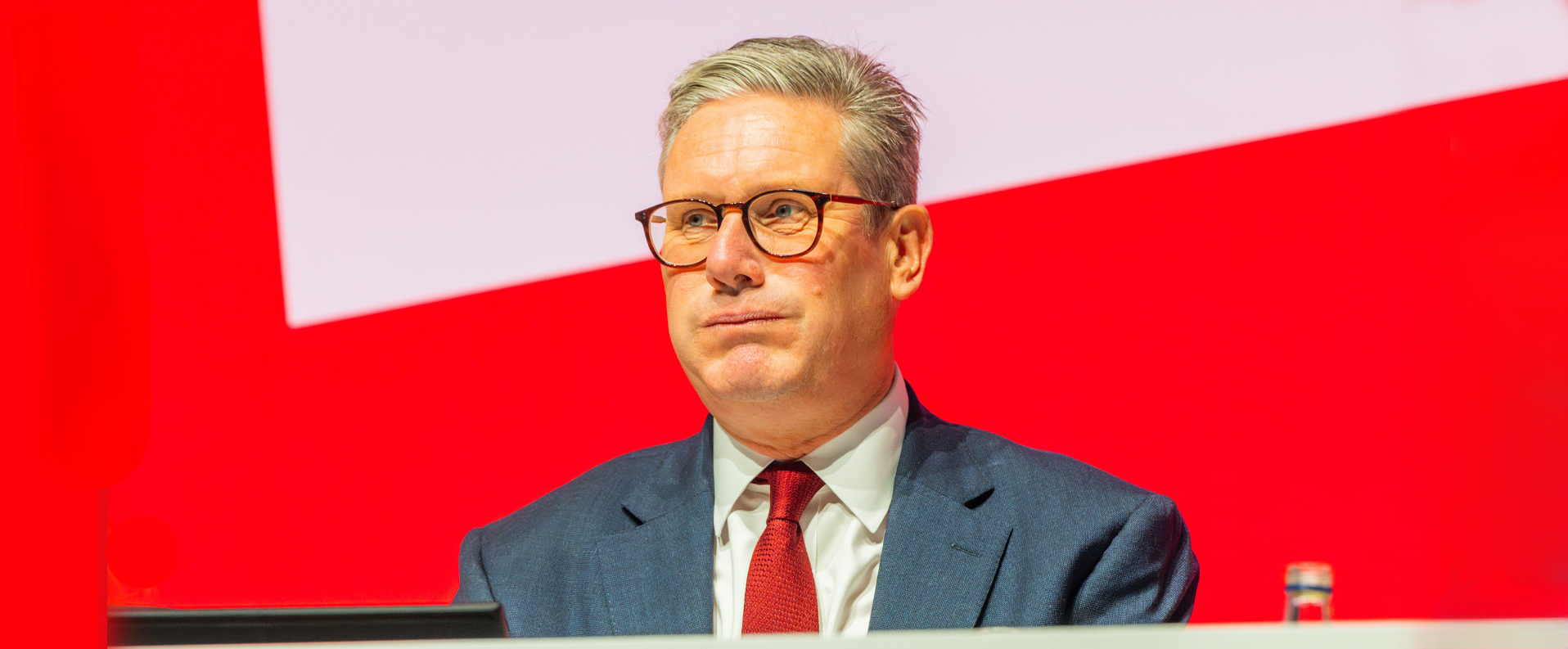
This speech was made by Lord Ashcroft on 29 April 2015 in Edinburgh. Introduced by Chris Deerin.
Thank you, Chris, for that kind welcome, and can I say what an honour it is to be introduced by Scotland’s Columnist Of The Year? Those of you who read Chris’s work will know that the accolade he received at the Scottish Press Awards was thoroughly well deserved, and that his writing is always brilliant – provocative, honest, thoughtful and original.
While I’m at it, I might as well add that such is his incisive grasp of public affairs, any of you who are not retaining the services of his company should have your people call his people first thing in the morning.
Did I get that right, Chris? Can I have my fee now?
Chris has asked me to talk about my research and what it tells us about the election. I won’t be making any predictions, but I will make some observations about how things are shaping up and how we got where we are.
I started polling ten years ago, in an effort to help the Conservative Party understand why it kept getting trounced. (You can judge for yourselves whether any of those lessons has yet got through.) But my first foray into Scottish research came two years ago, when I published survey which called into question the SNP’s assertion that the vast majority of Scots wanted to scrap Trident.
This experience taught me that anyone planning to comment on Scottish politics needs a ready supply of tin hats. A Nationalist MSP went so far as to introduce a motion at Holyrood questioning the integrity of the poll on the grounds that I was a rich Tory. (Evidently logic need not necessarily play any part in motions at Holyrood).
A few months later I conducted some more research which found that most Scots were still unaware which powers were devolved and which remained at Westminster; that most thought taxes and debt would rise if Holyrood had more powers; and that a majority opposed independence. Thus was I introduced to the terror of the CyberNats, who variously invited me to cease and desist, though they didn’t put it quite like that.
Funnily enough it has been some time since I was abused by a Scottish Nationalist. I can’t for the life of me think why. They are now often kind enough to thank me for my service in helping to inform our democracy. Indeed I saw a tweet from an SNP supporter over the weekend saying “After the election I think we should invite Lord Ashcroft to Freedom Square for free beers and stuff”.
Meanwhile most of the abuse now comes from George Foulkes, who seems certain I am up to no good, and that my polls serve some nefarious end that he can’t quite put his finger on.
You can’t really blame the partisans for preferring the polls that cheer them up. But I must say I am not used to cheering quite so many people up quite so much. This year I have polled 27 Scottish constituencies held by Labour, the Lib Dems and the Tories, and found the SNP ahead in all but three. I have found some extraordinary swings, the highest being 28.5% in Gordon Brown’s old seat of Kirkcaldy & Cowdenbeath.
Some question whether this extraordinary landslide will really happen on the day. The Lib Dems, for example, like to contend that I would have found a different result in these seats – or at least, in their seats – had I prompted my poll respondents with the names of individual candidates. In that case, they argue, I would not have found such a huge swing against, for example, Charles Kennedy. I am very doubtful about this argument. It requires you to believe that, on the one hand, Charles’s local reputation is so strong that he is unbeatable no matter what the national circumstances, and – at the same time – that even after 32 years as their MP nobody in his constituency will remember his name unless reminded by a pollster.
In fact, as I found in my focus groups last week in Glasgow, Paisley and Edinburgh, people do think about their local MP when deciding how to vote, but it is just one of the considerations. For some it is the single most important factor, but for most others it is not. One of our Glasgow participants told us he had decided his very good Labour MP was going to have to “suffer for the sins of others”.
But what are those sins? Why are so many people apparently ready to abandon a party that has been part of the fabric of their community for generations? There seem to be three reasons. First, compared to the SNP, Scottish Labour seem like a “branch office” of the London headquarters rather than a distinctively Scottish party. Second, many people think that by campaigning alongside the Tories and Lib Dems during the referendum – with what they saw as a very negative and scaremongering message – Labour had shown themselves to be part of the complacent establishment. And third, that since the Blair years Labour have become indistinguishable from the Conservatives – or as someone memorably said last week, “it’s just a different shade of shite”. The SNP now seems to these voters to be the true party of the left.
Meanwhile, Nicola Sturgeon has shown herself to be a powerful and attractive leader who, if anything, has the edge on Alex Salmond. But if Nationalist MPs were elected to Westminster in large numbers, what could they be expected to achieve? The answer in our research was usually some combination of “standing up for Scotland” and “making sure our voice is heard”. Specifics were rather harder to come by, but they included bringing an end to austerity, which was a more important priority for most than getting rid of Trident. But we found very few hoping for an early second referendum – even Yes voters seemed weary of the argument and the uncertainty. Perhaps above all, potential supporters hoped the SNP would keep a Labour-led administration honest and make sure it got its priorities right.
In the places we visited, nobody we spoke to was planning to vote Conservative. We did unexpectedly find a Tory in Paisley, but he was planning to vote for Douglas Alexander. But it was striking how highly they regarded Ruth Davidson. Even though most of them thought she was flogging a dead horse, she was doing so with great spirit, and they respected the fact that she so clearly has the courage of her convictions. As it happens, I agree, except that I don’t think the horse is by any means dead. Indeed I think if the next few years do bring greater powers to Holyrood, especially greater fiscal autonomy, that could present a real opportunity for the Conservatives in Scotland.
But looking to the more immediate future, we will see next week whether an SNP army really does materialise. As I remain at pains to point out, even at this stage a poll is a snapshot not a prediction. One reason is that polls themselves can influence the outcome as people have better information about the local state of play. Jim Murphy, for example, faces a very tough fight to hold onto his seat, but my latest poll found a 25% Conservative vote share in the constituency. Will Tories in East Renfrewshire vote Labour to save Jim? Or, as one of my confused Twitter correspondents put it, having absorbed Scottish Labour’s election message: “Is Jim Murphy now relying on Tories to vote Labour to keep the Tories out?”
Michael Moore’s Berwickshire seat looks particularly tasty. Earlier this month I found the Lib Dems on 28%, the SNP on 29% and the Tories with the ball unexpectedly at their feet on 30%. Each party is no doubt telling local voters that only they can stop the other two.
Tactical voting could also play a part in some critical seats south of the border. Poetically enough, Tories in Sheffield Hallam have in their hands the fate of Nick Clegg, who I have found just behind Labour in two recent polls. And Labour voters in Thanet South will have to decide which is worse – holding their nose and voting Conservative or being represented in parliament by Nigel Farage.
The other reason polls remain snapshots not predictions is that voters always reserve the right to a last-minute change of heart. If history is any guide, this would usually be towards the safety of the incumbent. But I would expect any such change to come very late, as a “head over heart” decision would probably be unpalatable and therefore put off for as long as possible.
Meanwhile, things remain very close indeed, both in terms of national vote share and projected seat numbers. This makes for a great deal of excitement for those of us with a taste for politics. Unfortunately for everybody else, the closeness is down to the fact that the voters – outside Scotland, at least – find the choice so uninspiring. The reason is that all three established parties were set a test by the voters in 2010, and all three of them have failed.
For Labour, the test was to show they had learned their lessons from the last time they were in government – and, in particular, to show that they can be trusted on the economy. They have not so much failed this test as refused to hand in their homework. Broadly speaking people think austerity is necessary if disagreeable. But Labour have opposed every cut, implying they would borrow still more, while at the same time complaining that the deficit is not falling fast enough.
Labour have also managed to give the impression that they are opposed to any kind of radical welfare reform, which is one part of the government’s programme people spontaneously praise.
Hardly surprising, then, that they have never managed to inspire confidence and that the biggest single concern people have about another Labour government – despite Mr Miliband’s protests – is that it would once again spend and borrow more than the country can afford.
For the Liberal Democrats, the doubt had previously been that the party was a wasted vote since they would never end up in government. Having found their way into office, they needed to show they could use what limited influence they had to the best possible effect.
But although some are glad the party is there to be a moderating voice, most people struggle to name any concrete Lib Dem achievements in government. This may be because so much of their bargaining power went into the AV referendum and Lords reform – two things that are now long forgotten, and indeed were barely noticed by voters even at the time.
That leaves the Conservatives. Why are they not cruising to an easy victory? After all, having the best available Prime Minister and a clear lead on managing the economy is usually enough to see a party safely returned to office. The problem is by the last election the party had not overcome people’s suspicions about it. The Tories needed to demonstrate in government that they really were on the side of ordinary people and could be trusted with public services like the NHS – but they now score no better on these measures than they did in 2010. Rather than being the party for people who want to get on, too many still think the Conservatives are just for people who have already made it.
Another way of look at the strategic problem the Conservatives have faced in this parliament is to look back at the landscape after the formation of the coalition. Mass defections from the Lib Dems, plus Labour’s core vote, meant Ed Miliband started with a column of voters adding up to a vote share in the mid-30s. For the Tories to have any chance of winning a majority, they would have to move people from that column into their own. This meant removing the things that had always put them off the Conservatives. But those things are still there, even though the Tories have managed to re-establish a reputation for taking tough but necessary decisions – if, sometimes with a bit too much relish.
This helps to explain why the economic recovery has not given rise to a clear overall Conservative lead. Recently my polling has found, for the first time in this parliament, people more likely to agree that “the right decisions are being made and things will improve significantly in the next year or two” than that “in a year or two the economy will be no better, or even worse, than it is now”. But a majority of Labour voters, and nearly half of those who plan to support UKIP, say that they themselves are not yet feeling the benefits of any economic recovery and nor do they expect to.
Thinking about the column of likely Labour voters the Tories needed to shift should also give us an idea of how the leadership question could have been handled. David Cameron remains an asset to the Tories. Though Ed Miliband’s approval ratings have risen over the campaign, Cameron retains a clear lead as the best available Prime Minister. But it seems to me that if one of your problems as a party is that some of the voters you need think you are “nasty”, then launching personal attacks against your opponent is not the best way to capitalise on one of the few advantages you have. What they needed to do, and what I think they are very belatedly trying to begin to do, is to show voters why strong leadership makes a difference and why it should matter to them who occupies Numbers 10 and 11 Downing Street.
There is a weary familiarity to this argument. Five years ago, people were already pretty fed up with the Labour government and had come to their own conclusion that Gordon Brown was not a particularly good Prime Minister. Their hesitation in voting for change was not over whether they could bear to live without Labour, but whether they could trust the Tory alternative. The Conservatives’ relentless attacks on Mr Brown were therefore not just ineffective but counterproductive, since every new assault was a lost opportunity to explain the Tories’ plans and reassure people about the party’s motives.
Since this seems to obvious to most normal people, you have to ask why parties behave like this. I doubt it really has much to do with strategy. The fact is, attacking the other side is a good deal easier, not to say more fun, than putting across your own plans in a succinct and appealing way. And second, politicians and those who work for them love laying into the enemy. They relish the game, and that’s how the game has always been played.
Not surprisingly, then, another group of people want to give them all a good kicking by voting UKIP. But we have seen the UKIP vote share drift down in recent weeks, both in the national polls and in my constituency research. I think there are three main reasons for this. The first is that as the election looms, people who are pleased that UKIP are around nevertheless feel that there is a choice of government to be made and, however reluctantly, they are going to have to make it. The second is that many think they have little to say on issues other than immigration and Europe, and however strongly they may feel about those things, general elections are about more than that. Thirdly, some people suspect that some unpleasant or even extreme elements lurk behind the entertaining Mr Farage.
When it comes to the main choice, then, we are left with pretty familiar, traditional views of the two main contenders. And both the Conservative and Labour campaigns are reinforcing these views, not changing them, or even trying very hard to change them. The Tories want to present the decision as being about competence and leadership, which is why they talk about economic recovery and the difference between Cameron and Miliband; Labour want the election to be about values, which is why they talk about the NHS and non-doms.
Little of substance is getting through to most people but what they do hear reinforces what they already think about the parties – good and bad. Parties cannot change in a five-week election campaign what they have been unable or unwilling to change in five years.
But one of the parties has to win the most votes and the most seats, and one party – possibly even the same party – will end up leading a government. In about 200 hours we will start to see the answer. Meanwhile, your guess is as good as mine.
Thank you very much.



